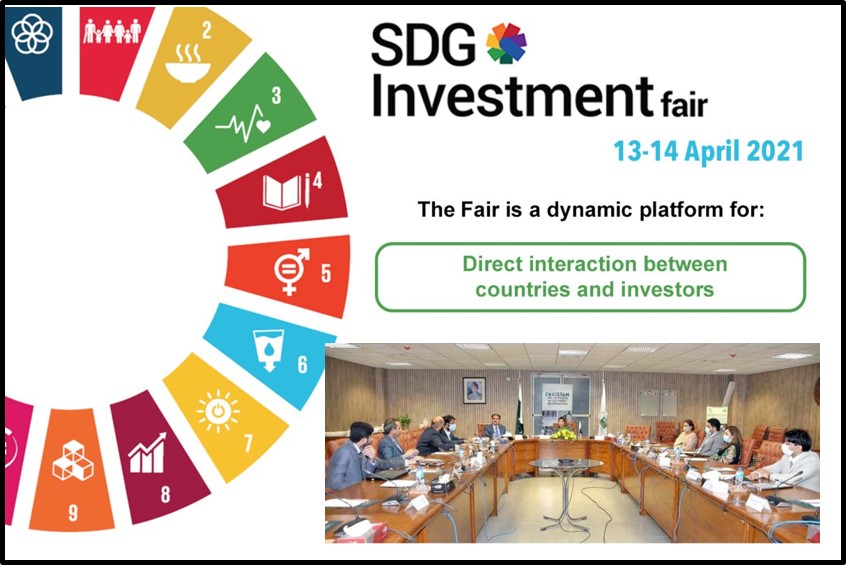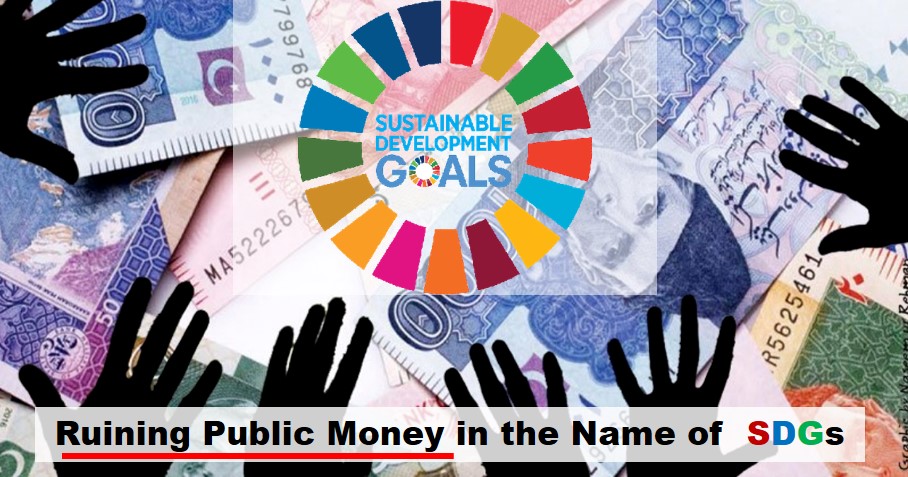“The Sustainable Development Goals (SDGs) are the blueprint to achieve a better and more sustainable future for all. They address the global challenges we face, including poverty, inequality, climate change, environmental degradation, peace and justice”. However, transparency of funds given to achieve these goals has always been a major question. Because in developing countries where corruption is rampant these funds are often mismanaged. And, that’s exactly what is happening in Pakistan. Because the ruling government is going to shower public money on lawmakers, as last week the Economic Coordination Committee (ECC) with Ishaq Dar in the chair has reportedly approved Rs 20 billion in favor of Cabinet Division in the name of Sustainable Development Goals.
Sustainable Development Goals in Pakistan
The SDGs were formulated in 2015 by the United Nations General Assembly as part of the Post-2015 Development Agenda, which sought to create a future global development framework to succeed the Millennium Development Goals. Commonly known as the Global Goals, SDGs are a collection of seventeen interlinked objectives designed to serve as a “shared blueprint for peace and prosperity for people and the planet, now and into the future”. They primarily emphasize the interconnected environmental, social and economic aspects of sustainable development by putting sustainability at their center.
But, what is weakening the essence of SDGs is the reality that corruption is rampant in poor countries, like Pakistan. SDGs are aimed at lower income and poor countries as they need it the most. However, in these countries, corruption is widespread as stated earlier. Funds that are given to these countries to help them achieve SDGs are being often mismanaged.
SDGs Achievements or Civil Works
In Pakistan, therefore it is senseless the cabinet`s Economic Coordination Committee approved an additional amount of Rs 20 billion for lawmakers in the name of the Sustainable Development Goals Achievement Programme. Under this scheme, ruling coalition lawmakers get Rs 500 million each, ostensibly to implement civil works in their constituencies that will contribute to the SDGs. But instead of sustainable development, with an eye on the elections, these lavish handouts will sustain many a political career among the ranks of government loyalists.

In order to secure these additional funds, it is claimed that five ministries were directed to surrender their funds, including Rs 10 billion from the communications ministry, Rs5.66bn from the railways` ministry, Rs3.43bn from the climate change ministry and Rs 861 million from the Planning Division. The Cabinet Division in its summary to the ECC said the government had allocated Rs 70 billion in the budget 2022-23 for running the community-based Social Action Program (SAPs) to achieve the SDGs, and addressing the urban-rural social development constraints across the country. These SAPs are interestingly limited to small schemes like sewage lines, gas, water and electricity connections, and repair and maintenance of streets in the name of Sustainable Development Goals.
Bribing the Kitchen Cabinet
It is really insensible, why a government that launched a much-trumpeted austerity drive at it’s arrival is doling out such large amounts of money when it only has a few days left constitutionally in power, and when the coffers are empty. There is no need to mention how badly their austerity drive has failed, having 34 Federal Ministers, 7 Ministers of State, 4 Advisers and 39 Special Assistants to the Prime Minister in the Kitchen Cabinet. If Advisers and Special Assistants included, the cabinet is reportedly the largest in Pakistan’s history.
With reserves plummeting into dangerously low territory, ruination of public money in the name of SDGs is highly irresponsible and smacks of politics. Besides, there are already serious questions of transparency where the money is concerned, as there is no strict monitoring of how and where such funds are being spent. What is more likely apparent is the lawmakers of the coalition government are being virtually handed over blank cheques by the government, at the expense of the taxpayer.
By
Editorial, Infocus


